Send for Doctor Russell – the Tardis saviour is back
Will a new star and Disney money rescue Doctor Who? Russell T Davies talks about second acts.
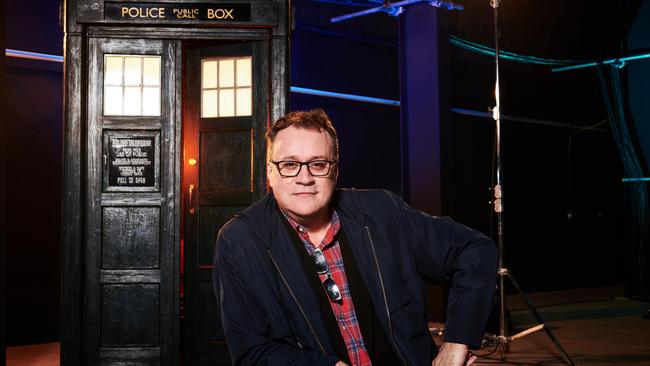
Russell T. Davies is not a man for holding back, whether he’s talking about Tories (not a fan), the BBC (definitely a fan) and much else. When we meet at the BBC’s Broadcasting House, the producer is due to head to the US for a two-week publicity blitz he and the BBC’s new producing partner, Disney, hope will properly break Doctor Who there.
What if he sounds off against Donald J. Trump and therefore alienates half the country, as John Lennon did when he said the Beatles were more popular than Jesus? Will – can? – this big-hearted bear hug of a Welshman keep his lips buttoned?
“I can’t,” he says with a chuckle. “They’re yet to discover that … I’ll be chased out.”
The glee in his tone belongs to a natural outsider who proudly carries the scars from skirmishes over some of the more overtly political content in previous series of Doctor Who and his other hit dramas, including pioneering gay shows Queer as Folk and It’s a Sin.
But the jauntiness is also down to his delight that the show he seems to love above all else is growing thanks to the extra Disney money that has already been splashed on three episodes featuring David Tennant and a Christmas special that introduced his dazzling new Time Lord, Ncuti Gatwa.
Doctor Who has its mojo back, beginning with last week’s double bill: an opening episode called Space Babies, set in a space baby factory, that has a few things to say about social care and also the abortion debate.
The second, The Devil’s Chord, is set in ’60s London, where the music of the Beatles and Cilla Black has been deadened by the Maestro, a villain played with exuberance by American drag queen Jinkx Monsoon.
Davies is aware of disquiet from some British producers that streamers are taking over British TV production. But even before he made his surprise return to the Tardis, he privately thought a deal like this needed to happen to put the show “up there with your Star Wars, your Marvel stuff”.
The Disney alliance is also a sign of faith in the show, Davies says. And while he gets production notes on his scripts, he has not been censored, on either the show’s political content or its Britishness.
“Compliance and editorial policy drives us mad here, but I sleep at night,” he says. “I agree with those editorial notes when I get them … especially with something like Doctor Who, which you’re transmitting to children.”
At the screening of the opening double bill I was sitting directly behind Davies, who performed a seat dance when the theme tune kicked in. So many great writers (Charles Dickens being perhaps the most notable) remember what it feels like to be a child, I say. “I’ve never lost that joy,” he replies. “I think all writers actually have that child inside.”
He talks movingly about a beloved friend and neighbour who hosted tea parties for 14 or more children to watch Tennant episodes. He also remembers when he brought the show back in 2005, starring Tennant, and its producer, Julie Gardner, received a letter from a divorce lawyer telling her that, for all the bitterness of the terrible breakups the lawyer witnessed, “the one thing a lot of these families do is sit and watch Doctor Who on a Saturday night with their kids”.
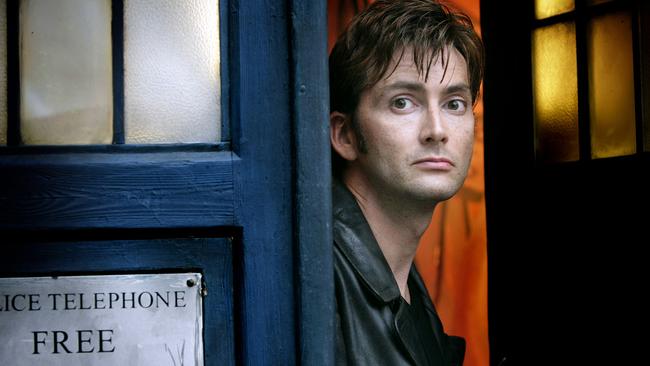
Unlike any other show, Davies believes Doctor Who is “woven into the family, it is woven into the hearth”, and is “part of childhood memories”. It was certainly a salve for him as a closeted young boy who spent his childhood walking Swansea streets, inventing Doctor Who stories and hoping the blue box would come for him. (His beloved parents, who were teachers, were friends with novelist Kingsley Amis in his Swansea days and might well have been partly fictionalised in his book, The Old Devils.)
After he left Doctor Who in 2010, Davies didn’t stop inventing stories, which is why he is here today, aged 61 (the same age as the program), with new battles to fight in the space-time continuum.
At the screening for the 2023 Christmas special he imagined a horrible reaction to a transgender character, Rose (played by Yasmin Finney), and made a passionate denunciation of “newspapers of absolute hate and venom and destruction and violence who would rather see that sort of thing wiped off the screen and destroyed. Shame on you and good luck to you in your lonely lives”. One of the papers he had in mind gave the episode five stars. Was the outsider in him annoyed about that? “Very annoyed,” he says, laughing. “I’m sure it won’t last.”
Davies regularly meets students and is worried about “their nervousness and mental health”. He believes “anti-gay, anti-queer thinking is on the rise” and that it is “smuggled in under the disguise of children’s rights and protecting children”. “Rights,” he says, are “paper-thin” and “the world is heating up in some strange way”. And he blames the internet.
“The polarising of the argument is the problem: it’s shouting and screaming. The language is vile on both sides. And for intelligent people there’s got to be a middle ground. The greater argument is the co-opting of our public debate by tech giants. They don’t care about what we’re saying as long as they can find ways to monetise it and, actually, that’s fracturing our society apart and we’re letting it happen.”
Davies has dedicated an episode to this subject, the fifth in the new series, called Dot and Bubble, which seems to personify the monstrousness of the online world in actual Doctor Who monster form. Is this arch liberal leftie, who was outraged when The Life of Brian was banned, calling for censorship?
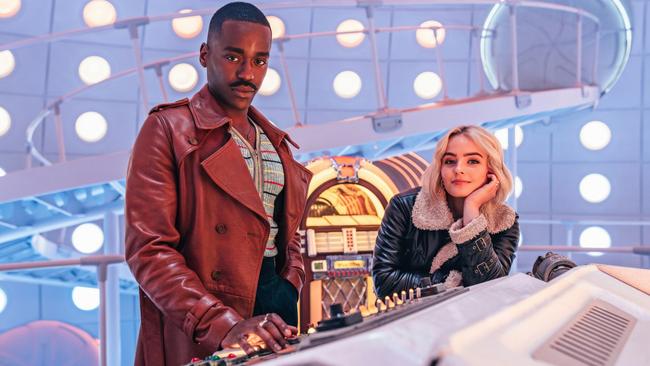
“Yes, yes. I’m a surprising advocate of censorship. The maddest thing we’re doing is allowing six-year-olds to have mobile phones on which they’re watching hardcore porn. And then we ask, why are young people having such mental health problems?”
Given how worried he is about the world, you might think he struggles to clock off, but Davies says he sleeps “like a log”. Even when the love of his life, his “lovely husband”, Andrew Smith, who died of a brain tumour in 2018, was seriously ill and Davies was his primary carer.
Work seems to be his life. A second series of the relaunched Doctor Who is nearly finished and he has started writing a third even though it’s not been formally commissioned. Plans are active for spins-offs and his mind is revving.
There’s a moment in the new run when Gatwa’s Doctor suggests in passing that some companions want to see the Bethlehem Nativity, something this show has perhaps wisely steered clear of. But it’s on the cards.
“Oh my God. Absolutely, that’s the great Christmas special waiting to happen,” Davies says. “I know. It’s funny, we’ve talked about it … give us time … We’d do that with a bit of respect and fun.”
He isn’t sure how long he will stay with the show, how long Gatwa will stay in the role or whether he would “do another Doctor after that”. One thing is for sure, though: while David Tennant’s Doctor may have survived in a parallel time zone, his time is now up.
“I think he died,” Davies chuckles. “I’m going to start saying that. He went to Venice, 2063, when the city sank, and he went into a whirlpool, which is really sad … it’s all Ncuti’s show now.”
Happily, Davies keeps coming back. His mind is bubbling with ideas and he knows he won’t be able to write them all. I’d love to see something about the boy who longed for escape in the Tardis. “Young Russell: The Drama"?
“Yeah, well, they all are in a way,” he says. “I have no other material.”
The Times
The new series of Doctor Who streams on Disney+

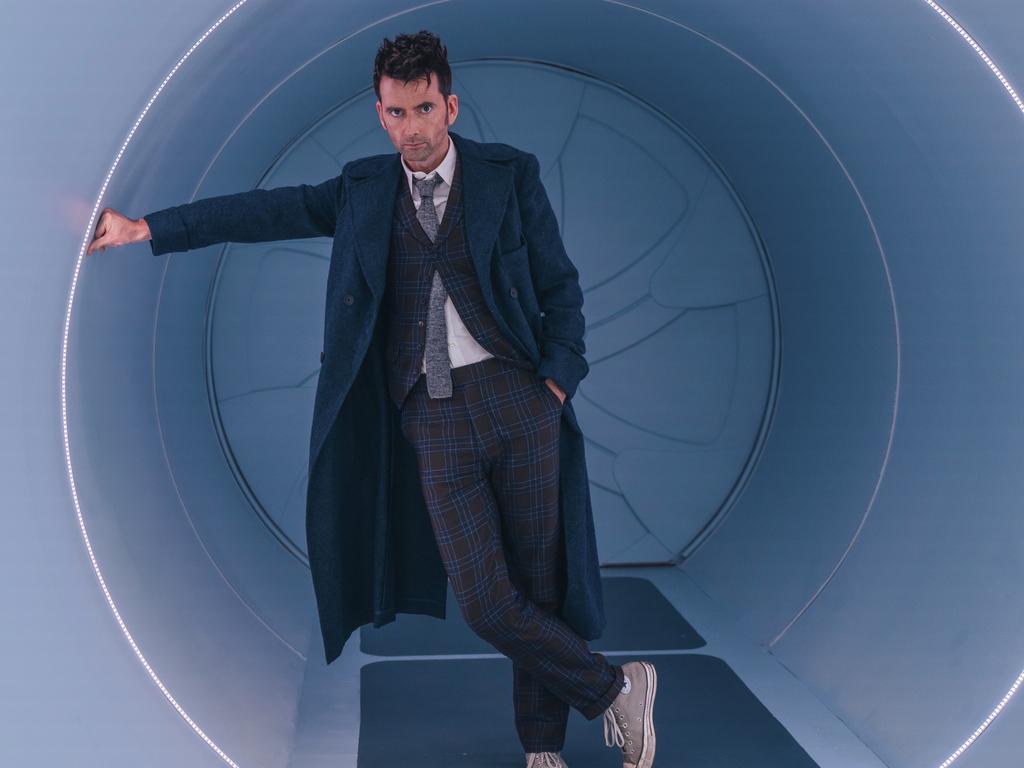
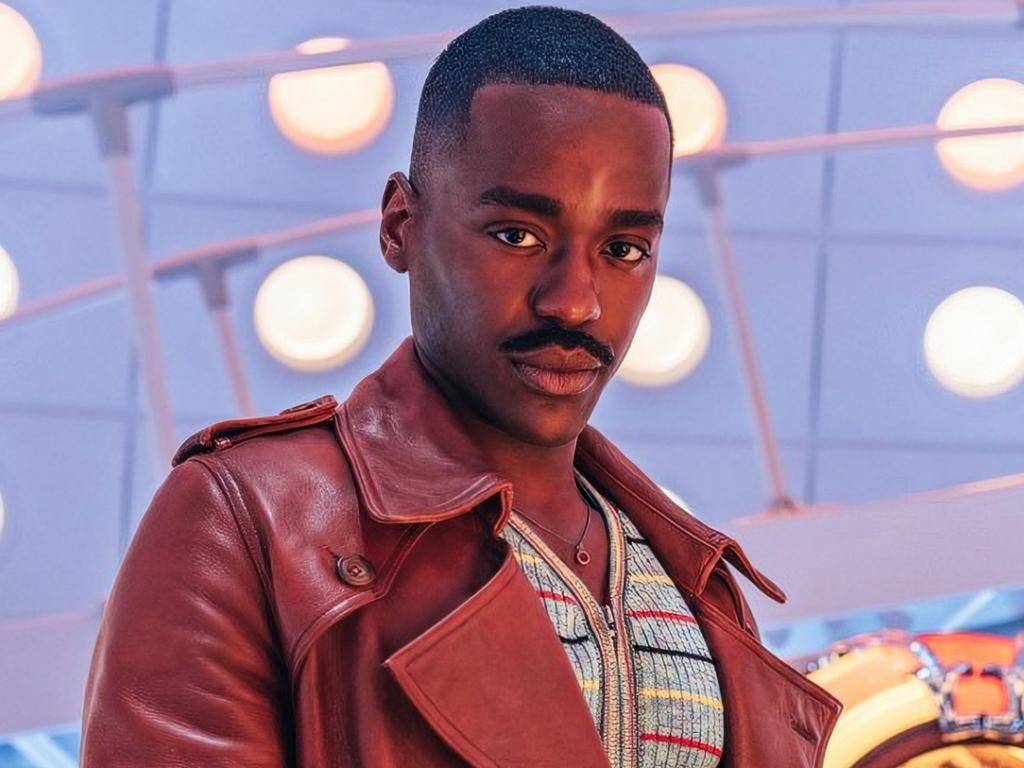
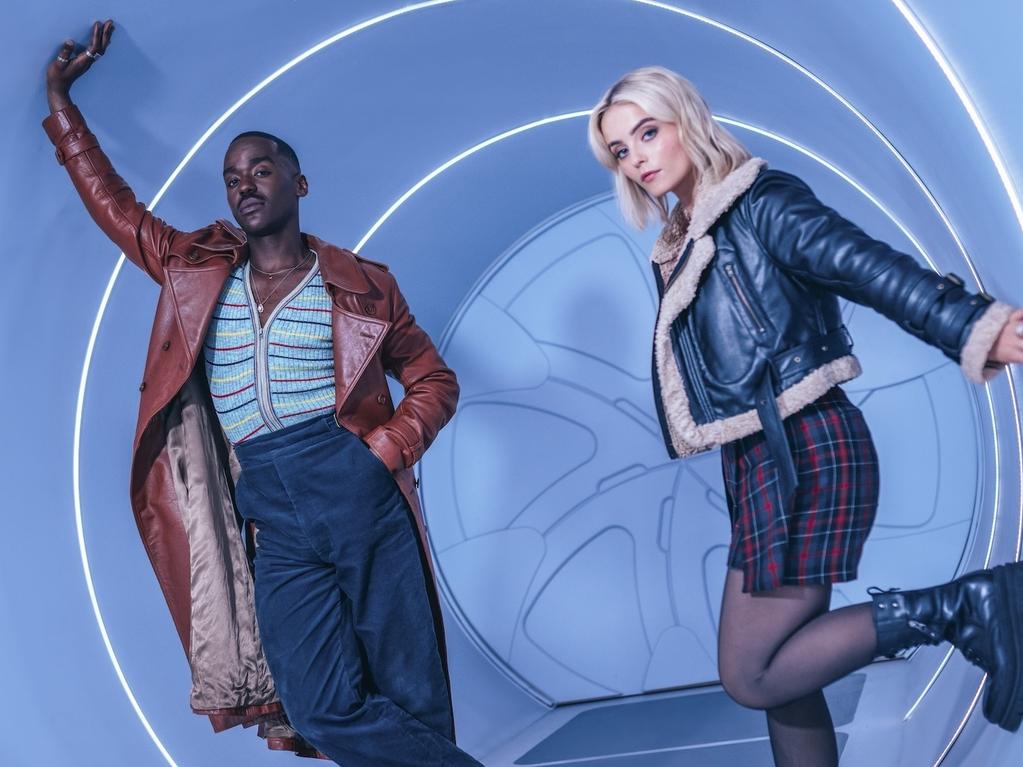
To join the conversation, please log in. Don't have an account? Register
Join the conversation, you are commenting as Logout